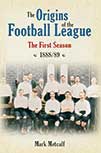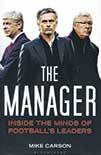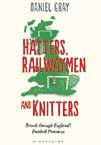 The first season 1888/89
The first season 1888/89
by Mark Metcalf
Amberley, £14.99
Reviewed by Paul Brown
From WSC 321 November 2013
In 1888, during the early days of professional football, clubs began to look for a way to secure a regular income beyond that generated by occasional cup ties and friendly matches. It was Aston Villa director William McGregor who proposed the solution, suggesting that “the most prominent clubs in England combine to arrange home and away fixtures each season”. As the Football League celebrates its anniversary 125 year later, Mark Metcalf’s extensively researched book examines the inaugural season of the game’s oldest league competition.
The Origins Of The Football League opens with a brief but useful primer on the state of football in 1888. It was an evolving game in which there were no penalty kicks or goal nets, and goalkeepers could handle the ball anywhere within their own half. But growing interest and attendances allowed the League’s 12 founder members to flourish. Indeed, 11 of the 12 still play League football today – the exception is Accrington (not to be confused with Accrington Stanley), who folded in 1896.
The book traces the 1888-89 season via a series of match reports, many of which are taken from contemporary newspapers. These early reports have, as Metcalf puts it, “a certain symmetry to them”, typically detailing the weather and pitch conditions, while studiously recording who won the toss before presenting a fairly perfunctory account of the play. “The visiting right made an attack that was cleared by Bethell,” reads an opening-day report for Bolton Wanderers v Derby County, “and in two minutes from the start Kenny had scored a fine goal for the Wanderers. A protest for offside was raised in vain.” That Kenny Davenport goal was, the author reveals via some detective work involving kick-off times, the first League goal.
Without wishing to spoil the book’s ending, the story of the 1888-89 season is also the story of Preston North End’s “Invincibles”, who won the League without losing a game. “The feat North End have accomplished, gaining 18 victories and four draws [is] a record for which no comparison can fairly be found,” one reporter wrote. Preston also beat Wolves 3-0 in the FA Cup final to claim the first football “double”. That was hard lines for the fearsome Preston full-back Nick Ross, who missed the triumph by moving for a single season to Everton.
Ross is profiled in the book’s comprehensive gazetteer, alongside hundreds of other players ranging from the well known, such as Johnny “All Good” Goodall, who scored 21 goals in 21 games for Preston in that first season, to the virtually unknown, such as the mysterious W Mitchell, who played one game for Blackburn Rovers, scored two goals and was never heard of again.
The comprehensive nature of The Origins Of The Football League may be both a blessing and a curse. For the casual reader, a book that contains hundreds of consecutive match reports, many of which are relatively inconsequential, might not represent much of a page-turner. But as a book to dip into – and as a reference work – it’s a valuable and timely record of the birth of one of football’s most important institutions.
 Inside the minds of football’s leaders
Inside the minds of football’s leaders Travels through England’s football provinces
Travels through England’s football provinces